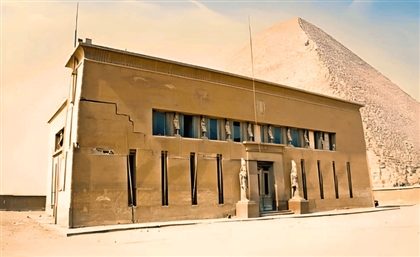Key Features of Egypt’s Proposed Personal Status Law
The draft law includes new provisions, such the mother becoming the primary guardian of children after the father's death.

The Chairman of the Committee for Drafting the New Personal Status Law has announced the completion of the law’s draft. The proposed law, which will soon be presented for public discussion involving all segments of society, introduces comprehensive regulations on matters such as engagement and its dissolution, marriage, divorce, visitation rights, alimony and other personal affairs.
In formulating the law, the committee reportedly sought to incorporate diverse perspectives, legal precedents, and judicial interpretations from the Court of Cassation and the Supreme Constitutional Court.
Here are some of its key features:
Guardianship after the father's death: In the event of the father's death, the mother becomes the primary guardian of the children, taking precedence over the grandfather. The law allows the mother to use the children's funds for her maintenance under court supervision to ensure these rights are not abused.
Reordering Custody Priorities: The father is given second place after the mother in custody priorities, rather than being in the 16th position as he was before. Previously, custody would first go to the mother, then the maternal grandmother, followed by the paternal grandmother, then the maternal aunt, and so on. However, it has been confirmed that in the new law, if the mother loses custody for any reason, it will now transfer directly to the father, then to the maternal grandmother, and then to the paternal grandmother.
Visitation and hosting: The non-custodial parent can host the child for specified periods weekly and annually, with the possibility of overnight stays with a ceiling of 15 days a year. If the child is not returned to the custodial parent, the law imposes penalties such as severe imprisonment. The new law will also state that visitation has to be at least 10 hours per week.
Streamlining divorce procedures: The law mandates that a divorce must be officially documented in court to ensure the rights of the wife and children. The husband can be penalised if he fails to register a verbal divorce within 15 days. In case of absent divorce, the Islamic marriage registrar has to inform the wife within 15 days.
Custody age determination: The custody age remains at 15 years for boys and until marriage for girls, applicable to both Muslims and Christians.
New legal procedures: A family care fund will be established to address expenses and challenges related to personal status matters. The new law requires that the judge inquire about the father's salary, including incentives, by contacting the employer. Previously, the law burdened the mother with providing this information to the judge.
- Previous Article WATCH: Ahmed Malek, Aya Samaha & Director Karim Shaaban on ‘6 Ayam’
- Next Article Inside Egypt’s Seven UNESCO World Heritage Sites



























